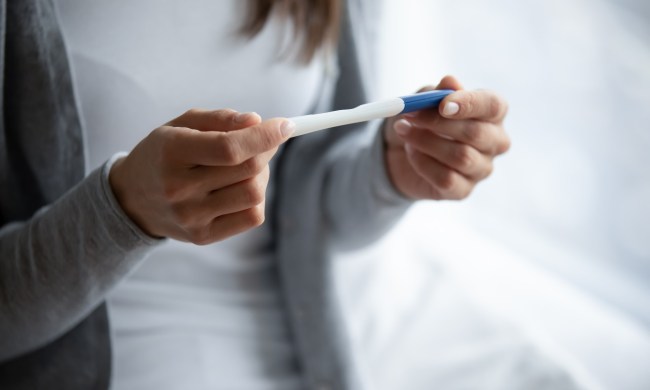Feeling your baby kick is a major pregnancy milestone and is nothing short of awe-inducing. Although you’ll start to feel those first few kicks sometime in your second trimester, they will grow in force and intensity as you go into your final trimester, and you might also feel more formidable pressure in your growing belly.
Pregnancy brings a lot of questions, including why you are feeling pressure in your lower abdomen. This may feel odd, but rest assured, there are plenty of logical reasons for this and you shouldn’t panic over feeling the baby kicking low.
Why am I feeling my baby’s movement in my lower abdomen?

Up until this point in your pregnancy, there’s been a lot of room for kicking and even somersaults in your belly. At this stage, your baby is discovering their arms and legs and experimenting with moving them. The movement is similar to play or exploration exhibited by newborns and very young babies when they move their limbs freely to see what happens. In this case, the level and location of the baby’s “kicking” varies, and at times, it feels like it’s located lower in your belly.
It may feel unusual, but you don’t need to worry if you feel your baby kicking in your lower abdomen. This movement means that he or she is “frolicking” and “exploring,” which facilitates gross motor and neurological development. It’s actually pretty cute when you think about it. According to Healthline, when you feel your baby’s movement in your lower abdomen, he or she might be:
- Turning over
- Hiccupping
- Flexing
- Kicking
- Stretching their limbs
(After all, it’s a little crowded in there!)
The location of the kicks differs with trimesters and womb space

In the early stages of pregnancy, your baby’s fluttery movements feel somewhat faint. The kicks can be felt lower in the abdominal area, close to your belly button or right below it. Because the upper uterine wall is still growing, your baby might wiggle around in the lower pelvic area and eventually make his or her way up.
Keep in mind that your baby still has a lot of wiggle room, and the location of the kicking is likely to change within days, if not hours.
Why does my baby feel so low in my pelvis?
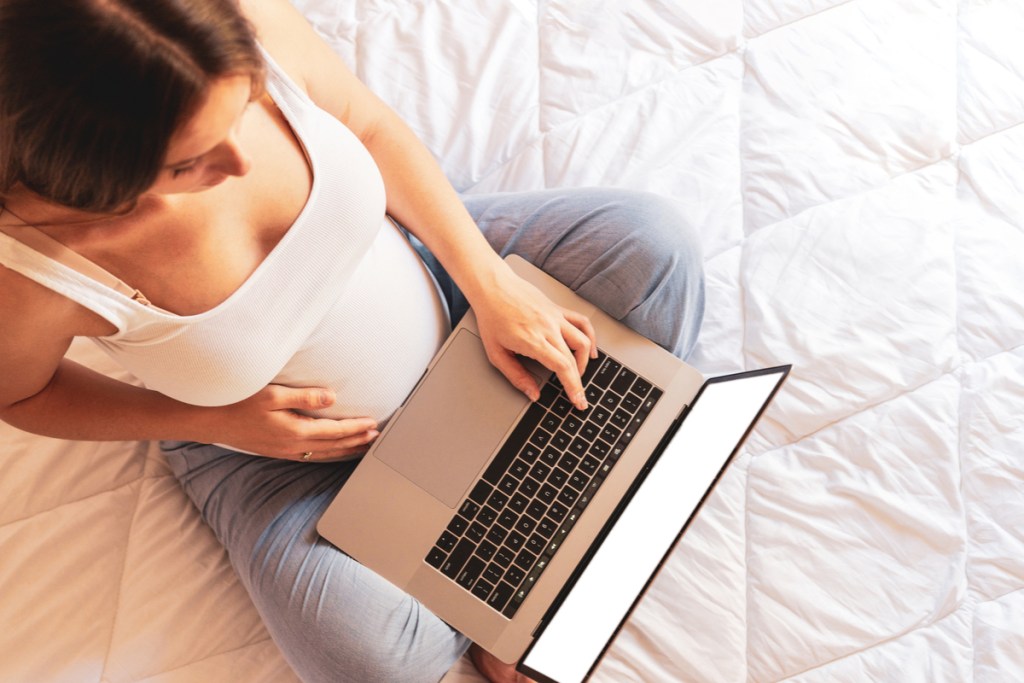
If this is your first baby, you may find yourself wondering why you’re feeling your baby so low in your pelvis, especially if you’ve been experiencing most of their movement in other parts of your abdomen up until this point. Often, as your baby begins to prepare for labor, they will slowly begin to descend toward the pelvis, resulting in more sensation and pressure in that area.
As Healthline explains, this is referred to as “lightening.” Although lightening typically happens just a few hours before labor is set to begin, it can happen up to a few weeks before your baby makes their grand arrival.
Does the baby’s kicking in the lower abdomen hurt?
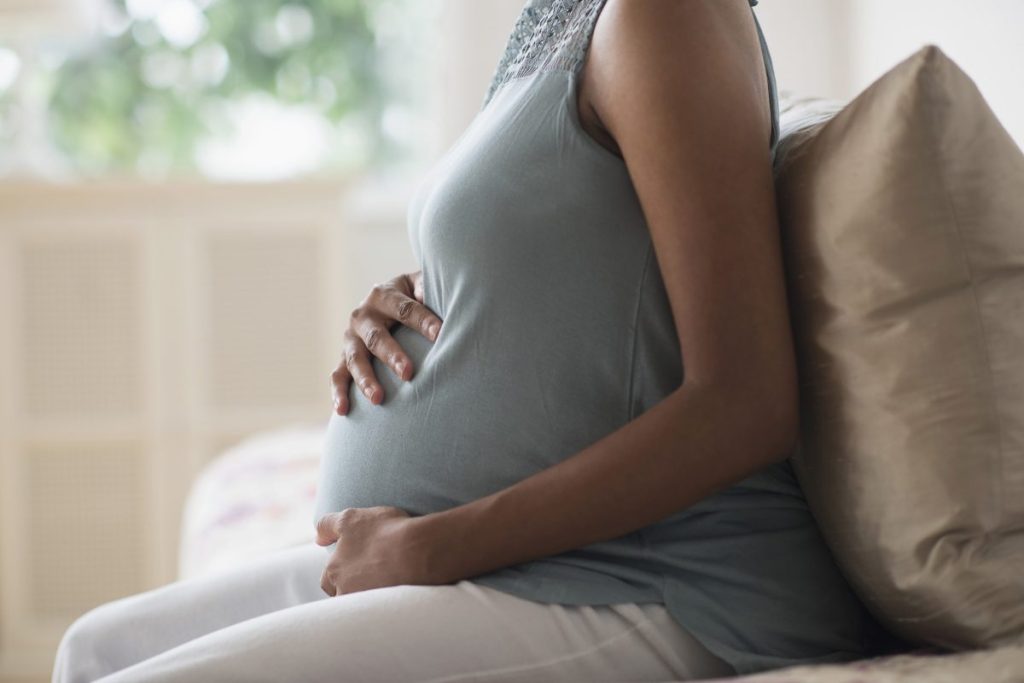
In general, a baby’s kicking or punching doesn’t cause sharp pain, but at the same time, you’ll definitely know the difference between pregnancy-related flatulence and your baby’s movement. For example, during the sixth month, a baby’s kick takes on a “punchy” type of movement. If he or she has the hiccups, then you can feel the rhythmic tremors. The only time you’ll feel your baby’s movement in the lower abdomen is if he or she is performing some rather elaborate acrobatics because there is still a lot of space in the amniotic sac.
If you experience pressure, more like a “thud” in your lower abdomen, your baby’s head, rather than their feet, is likely pressing against your belly or your back.
Third-trimester movement and what to expect
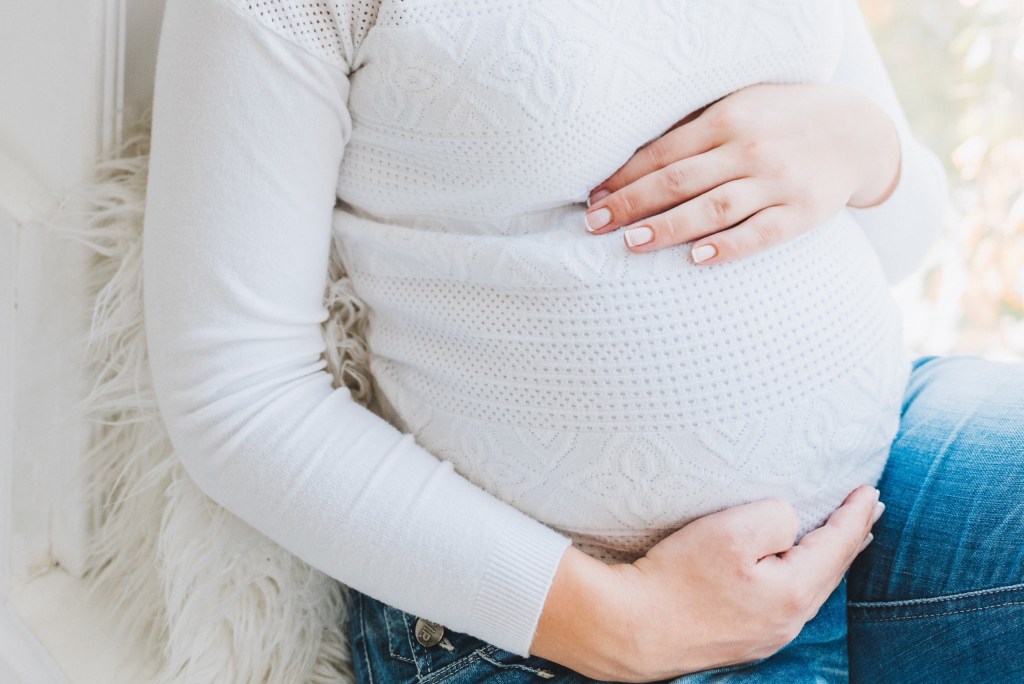
Another factor to consider, going into the third trimester, is that the baby has found a comfortable spot to occupy for the time being, or your little one might still have his or her head facing upward. You don’t have to be alarmed because most of the time, the baby will likely turn over as the due date approaches.
Another odd sensation some pregnant women experience is kicking which appears to take place in the upper vaginal area. Sometimes, the baby’s feet (or arms) are not reaching down that far, but rather, right on top of the cervix.
Can kicks tell you about your baby’s position?

As you enter your second trimester, you’ll notice your baby beginning to move more and more. This is very natural and common because the baby has room to move. As your pregnancy progresses and your baby gets bigger, they won’t be able to move around as much. When your baby is in both the anterior and posterior positions (head down with either their back to your stomach or back to your back) you will tend to feel your baby’s movements in your middle to lower belly.
If you’re feeling kicks near your ribs or on either side of your stomach, your baby may be in a breech position or lying sideways in your belly. Most babies end up turning until they are head down by the time they are ready to be delivered, but you should contact your doctor immediately if you notice their movements have slowed down or stopped.
Kicks are reassuring

Although kicking in the lower abdomen can be uncomfortable, it’s also reassuring to feel your baby moving, especially as your pregnancy progresses. Those kicks will become stronger and more defined as your baby grows, but the frequency and intensity of the kicks can vary.
Babies are also more active at certain times of the day, such as after meals or when mom is trying to get some rest. Some women may notice a decrease in movement toward the end of pregnancy as the baby grows and has less space to move around, but any significant changes in movement patterns—such as a noticeable reduction or complete lack of kicking should be brought to the attention of your health care professional. Overall, these movements are a normal and exciting part of pregnancy.
When to check with your doctor about baby kicking low
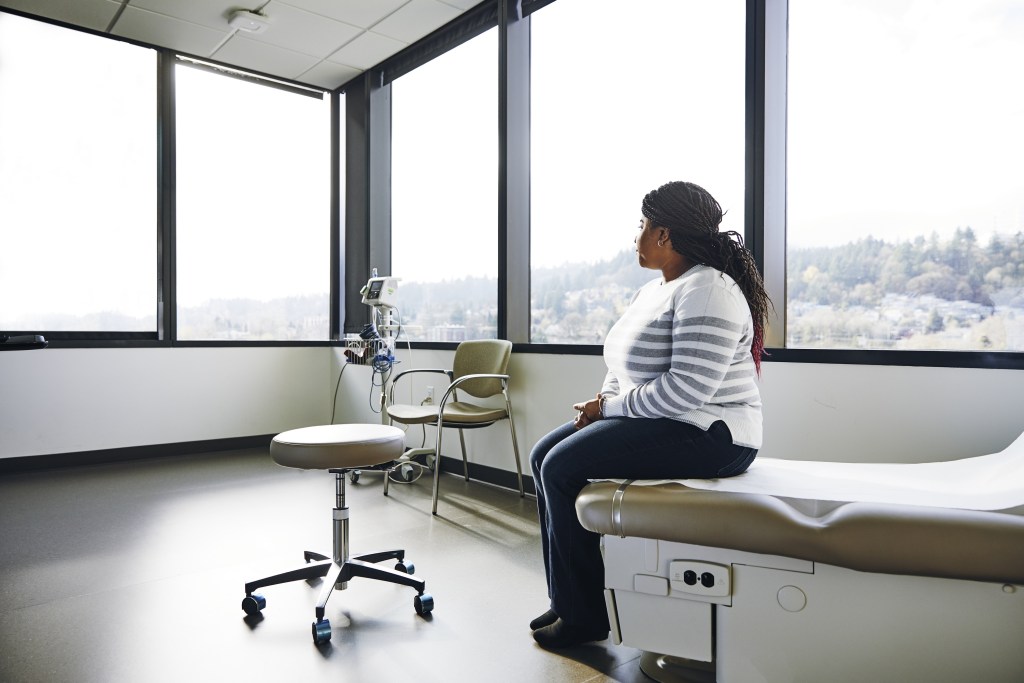
If your baby is in a breech position, you’re going to feel more kicking in the lower abdomen than if your baby is in a vertex (head down) position. However, your obstetrician might be able to “flip” the baby over before the due date. This is called an external cephalic version or ECV, where the doctor uses gentle but firm pressure to turn the baby over. Healthline also advises contacting your doctor if you experience any of the following symptoms:
- Severe diarrhea
- Dizziness or fainting
- Vaginal bleeding or unusual discharge
- Pain in your arms, chest, or legs
- Fever over 100 degrees Fahrenheit
- Swelling
- Pain while urinating
- Blurred vision or severe headaches
Final thoughts on baby kicking low and contributing factors

When you wonder, “Why is my baby kicking in my lower abdomen?” you can rest assured that there are no major issues affecting your pregnancy, and for the most part, the location of your baby’s movement relates more to his or her position.
The size of your baby and the stage of your pregnancy are also contributing factors, but of course, if you ever have questions or concerns, you should always contact your health practitioner. In the meantime, simply enjoy feeling your little one turning flips and think of the joyful delivery day that will soon arrive.


